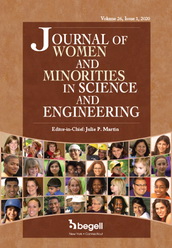
年間 6 号発行
ISSN 印刷: 1072-8325
ISSN オンライン: 1940-431X
Indexed in
GENDER AND PHYSICS: A THEORETICAL ANALYSIS
 Get access
Get access
要約
This article argues that the objections raised by Koertge (1998), Gross and Levitt (1994), and Weinberg (1996) against feminist scholarship on gender and physics are unwarranted. The objections are that feminist science studies perpetuate gender stereotypes, are irrelevant to the content of physics, or promote epistemic relativism. In the first part of this article I argue that the concept of gender, as it has been developed in feminist theory, is a key to understanding why the first objection is misguided. Instead of reinforcing gender stereotypes, feminist science studies scholars can formulate empirically testable hypotheses regarding local and contested beliefs about gender. In the second part of this article I argue that a social analysis of scientific knowledge is a key to understanding why the second and the third objections are misguided. The concept of gender is relevant for understanding the social practice of physics, and the social practice of physics can be of epistemic importance. Instead of advancing epistemic relativism, feminist science studies scholars can make important contributions to a subfield of philosophy called social epistemology.
-
Gonsalves Allison J., Danielsson Anna, Pettersson Helena, Masculinities and experimental practices in physics: The view from three case studies, Physical Review Physics Education Research, 12, 2, 2016. Crossref
-
Yates Lyn, Millar Victoria, ‘Powerful knowledge’ curriculum theories and the case of physics, The Curriculum Journal, 27, 3, 2016. Crossref